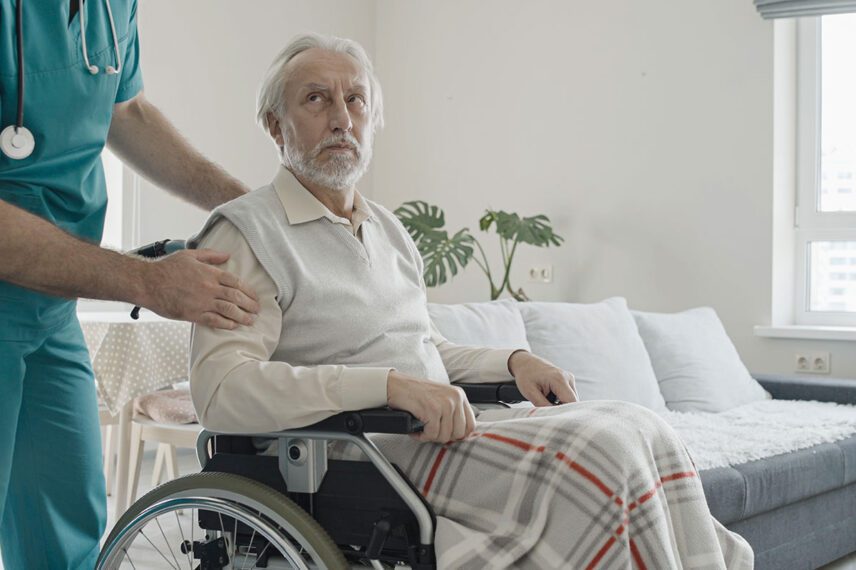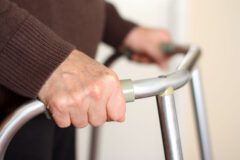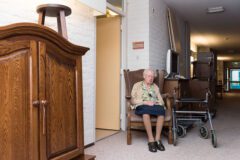Signs of Malnutrition to Watch for in Nursing Home Patients

Malnutrition is a type of neglect that occurs when caregivers fail to meet a set standard of care for their residents. Other types of neglect common to nursing home facilities include medical, hygienic, emotional, and basic needs.
Neglect often happens when a facility is understaffed, has high turnover rates, or has poorly trained employees. At its core, neglect is a type of abuse involving a failure to meet primary care needs. Warning signs of neglect can include:
- Dehydration
- Falls
- Bed Sores
- Malnutrition
- Lack of Daily Activities
- Poor Personal Hygiene
- Depression
- Unsafe Equipment
- Unmaintained property
What is Malnutrition?
Malnutrition is when a person receives too much or too few of the nutrients necessary for survival. Unfortunately, it affects a large population of the elderly and can be caused by several different factors, including:
- Physical – When a specific health concern (such as dental issues, stomach pain, chronic illness, medication side effects, or diminished taste or smell) makes eating difficult for a person. As many elderly patients also have underlying conditions, this is a common cause of malnutrition in senior citizens.
- Mental – Dementia and depression, two common conditions in the elderly, can make eating the proper amount of nutrients more difficult and make daily activities difficult.
- Socioeconomic – When financial or social issues make it hard to maintain a proper diet. Financial constraints can cause difficulty in purchasing nutritionally dense foods, as these items often cost more than less healthy options. Additionally, social isolation can lead to malnutrition. Many elderly residents may avoid eating, no longer enjoy cooking, or forget to eat at times they usually would if other people were present.
- Neglect – Neglect occurs when caretakers or staff do not adequately ensure residents receive the appropriate amount of nutrition. A well-trained staff will have ways of monitoring the caloric intake of residents as well as screening tools to ensure individuals are not suffering from malnutrition.
Warning Signs and Symptoms of Malnutrition
One of the best ways to prevent malnutrition is to visit your loved one often and in person during mealtimes. By visiting the facility in person, you can witness how much and what kind of food your loved one is receiving. If you notice any of the below warning signs of malnutrition, consult a doctor immediately.
- Canker sores
- Fatigue
- Exaggerated wrinkles
- Whitened fingernails
- Yellowing of the skin
- Difficulty thinking
- Impaired cognition
- Dizzy spells
- Red or glassy eyes
Long-Term Effects of Malnutrition
Malnutrition in the elderly can lead to a weakened immune system, increasing the risk of further infections and hospitalizations. Additionally, older adults who suffer from malnutrition may experience decreased bone and muscle mass, which can heighten the risk of falls and broken bones. The more malnourished the person is, the greater the risk of death, so ensuring your loved one receives an appropriate diet is critical.
Ways to Prevent Malnutrition
If you’re concerned about a loved one becoming malnourished, carefully screen any nursing home before selecting it. Don’t hesitate to ask the staff questions about how they monitor food nutrition and their protocol if a patient is not consuming enough. A good facility is familiar with the challenges regarding malnutrition in seniors, and they will also have strategies to cope with residents who are having a hard time meeting their daily caloric requirements, including:
- Using nutrient-dense foods such as whole grains, lean meat, fresh fruits and veggies, and fish.
- Adding flavor with additional herbs and spices to help residents who may have a diminished sense of taste or smell.
- Offering daily, nutrient-rich snacks in between meals.
- Providing nutritional supplements such as protein shakes or meal replacement formulas for those who have difficulty consuming enough food.
Conclusion
While it can be a battle to prevent malnutrition in seniors, you can do a few basic things to ensure it doesn’t happen within your nursing home facility. Keep a regular dialog between the nursing home staff and doctors regarding your loved one’s nutrition open. If they aren’t knowledgeable about how your loved one is eating, then it could be an early warning sign that something is wrong.
Visit your loved one as often as possible and try to visit them during mealtimes. By keeping in close contact with your family member, you can spot the early warning signs of malnutrition before it leads to further health complications.






